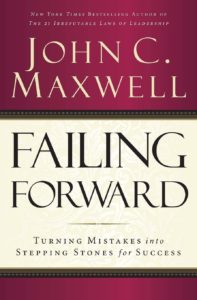
Successful people maintain a positive focus in life no matter what is going on around them. – Jack Canfield
I came across an interesting story not long ago about Roger Bannister. He was the first man in the world to run a mile in under four minutes. That was in May of 1954. The next month, Australian John Landy broke that record by 1.4 seconds.
In August 1954, the two fastest runners in the world met for a historic race at the British Empire Games in Vancouver, Canada. The race was dubbed “The Miracle Mile”, the “Race of the Century” and the “Dream Race”.
As Bannister and Landy turned for the last lap, Landy was ahead and looked certain to win, but as he neared the finish line he lost focus and allowed his mind to wonder about Bannister’s position. Unable to stand the strain, he finally looked back over his shoulder, and as he did his stride faltered and Bannister passed him to break the tape and win the race.
How that race ended is an example of what happens when we lose our focus. As leaders, it’s not how you start the race that matters but how you finish.

To commemorate the historic race, Vancouver sculptor Jack Harmon crafted a bronze sculptor of the two men captured at that moment when Bannister overtook Landy for the win.
Keeping focused as a leader is important. Staying in our lane is essential. I was reminded of this recently while driving on I-95 in Florida and passed a big sign that read, “Stay In Your Lane”. The primary purpose of the sign, of course, was to remind motorists of basic safety rules and that staying in your lane is a thing.
How you navigate the ins and outs of your leadership is important. In many respects, it’s about learning how to stay in your lane. Why is this important? Why should we be mindful of staying in our own lane? Here are a few tips that I think will help.
Staying in your lane keeps you focused
Staying in your lane keeps you focused on your priorities and responsibilities. As a leader, you have certain duties and things that fall under your purview that require your attention. But not everyone’s business is your business. Understanding what needs your expertise and work and what needs your opinion is something you need to learn as a leader. Click To Tweet
When you drift out of your lane, you tend to be in places where you don’t belong and end up meddling in ways that are unhealthy. It can lead to resentment and can cause more damage than good and when the crash happens it will be your fault. Stay in your lane!
Staying in your lane protects boundaries
Staying in your lane protects boundaries that must be respected. Just because you have an opinion on what’s happening two lanes over from you doesn’t mean that you need to swerve over and weigh in on it – unless you’re asked. Nothing will break down morale and hurt the culture in your organization faster than when someone gets out of their lane to barge in on someone else. And consider this: When you leave your lane of responsibility, what’s not getting done in yours that should be?
Healthy workplace cultures operate best when people stay in the lane that is designed for them. When you stay in your lane you will thrive in your lane and when you do no one is getting hurt. Stay in your lane!
Staying in your lane accelerates progress
The logical outflow of staying in your lane means everyone is moving forward at optimum speed. When you stay in your lane, focused on being your best where you are, doing what you do, means everyone else has the time, space, and energy to do the same. When you resist the temptation to change lanes or drift across drawn lines, it gives you and those around you the opportunity to move forward faster.
If your workplace or organization operates more like bumper cars then it could be because too many people are trying to change lanes. And while it’s being done by well-meaning people just wanting to help, it will end up creating more harm than good. The best advice I can give to you as a leader is simply this: stay in your lane!
Final Thoughts
Staying in your lane can be hard. It’s too easy to get distracted and lose focus. It doesn’t mean you walk around with blinders on and are oblivious to what’s going on around you. There may be times when a lane change is necessary to help at the moment, but then you get back in yours. There has to be a degree of flexibility here, but by and large, when you stay in your lane, crashes are avoided and everyone is moving forward together.
©2022 Doug Dickerson





 In his book,
In his book, 


